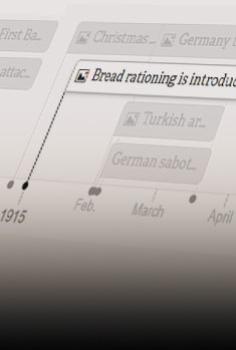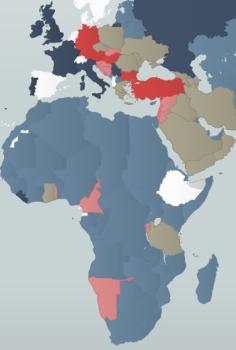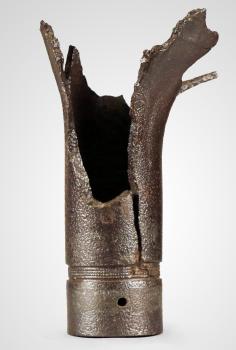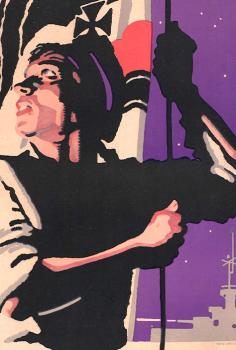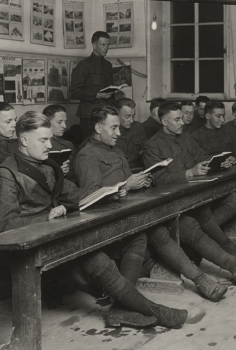
Entry in the Online Collections Database →
Charles Huard, a well-known illustrator of his time, served as an artist for France during World War I and captured both the everyday and the global nature of the war in his work. One of his lithographs from 1914 features a striking image of voluminously robed men with turbans before the ruins of a windmill in the Artois region of France.
The title, “Algerian Spahis in Artois,” tells that these men are North African soldiers fighting for France on the Western front.
Spahis in the French army
The French term “Spahi” is derived from an Ottoman Turkish word of Persian origin: “sipahi,” meaning “horseman.” Spahis were light-cavalry regiments of the French army recruited from Arab and Amazigh populations living within French North African colonies, including Algeria, Tunisia and Morocco. They were known for their expert horsemanship and distinctive uniforms.
These regiments began supporting the French military during the mid-19th century when France expanded its colonization of North Africa. The French army increased the number of Spahi units in WWI, at first to serve on the Western front as scouts, shock troops and escorts. However, the Spahis’ agile offensive tactics were rendered ineffective with the grim reality of trench warfare. Consequently, the French army moved Spahi regiments to fronts in the Ottoman Empire and the Balkans.
All seven units of Spahis fought in the war. The French army awarded several regiments – including the 1st Moroccan Spahi Regiment – citations for exemplary service.

Entry in the Online Collections Database →
Spahis as prisoners of war
During WWI, Germany and the Ottoman Empire forged a military alliance and started a global campaign of holy war propaganda. They wanted to convince French, Russian, and British Muslim colonial soldiers to fight for the Central Powers. As part of the campaign, they sent many captured Muslim soldiers – including Spahis – to a prisoner-of-war camp at Wünsdorf-Zossen (the “Halbmondlager” or “Half Moon Camp”) built specially for Muslim POWs.
To learn more about Spahis and the propaganda campaign specifically targeted at Allied soldiers of Muslim faith, check out the digital exhibition Fighting with Faith: A WWI POW Camp of Propaganda


